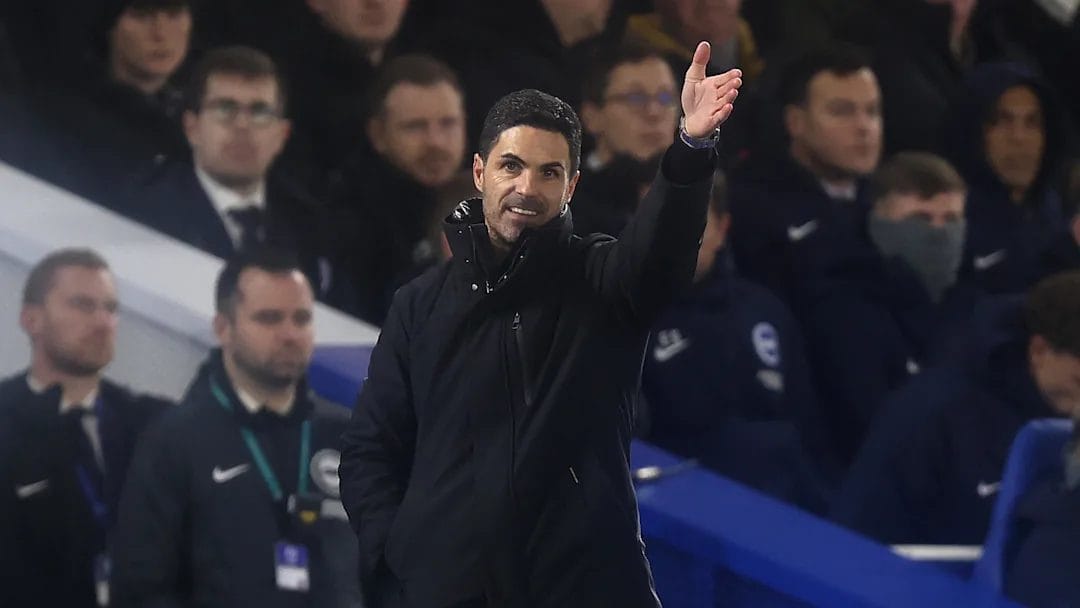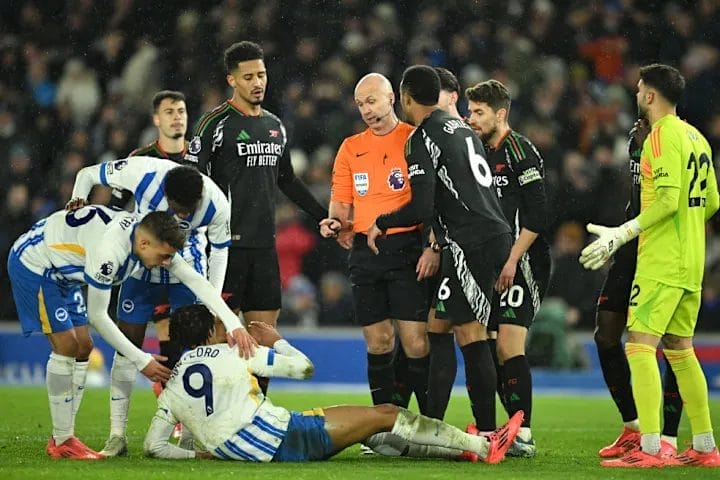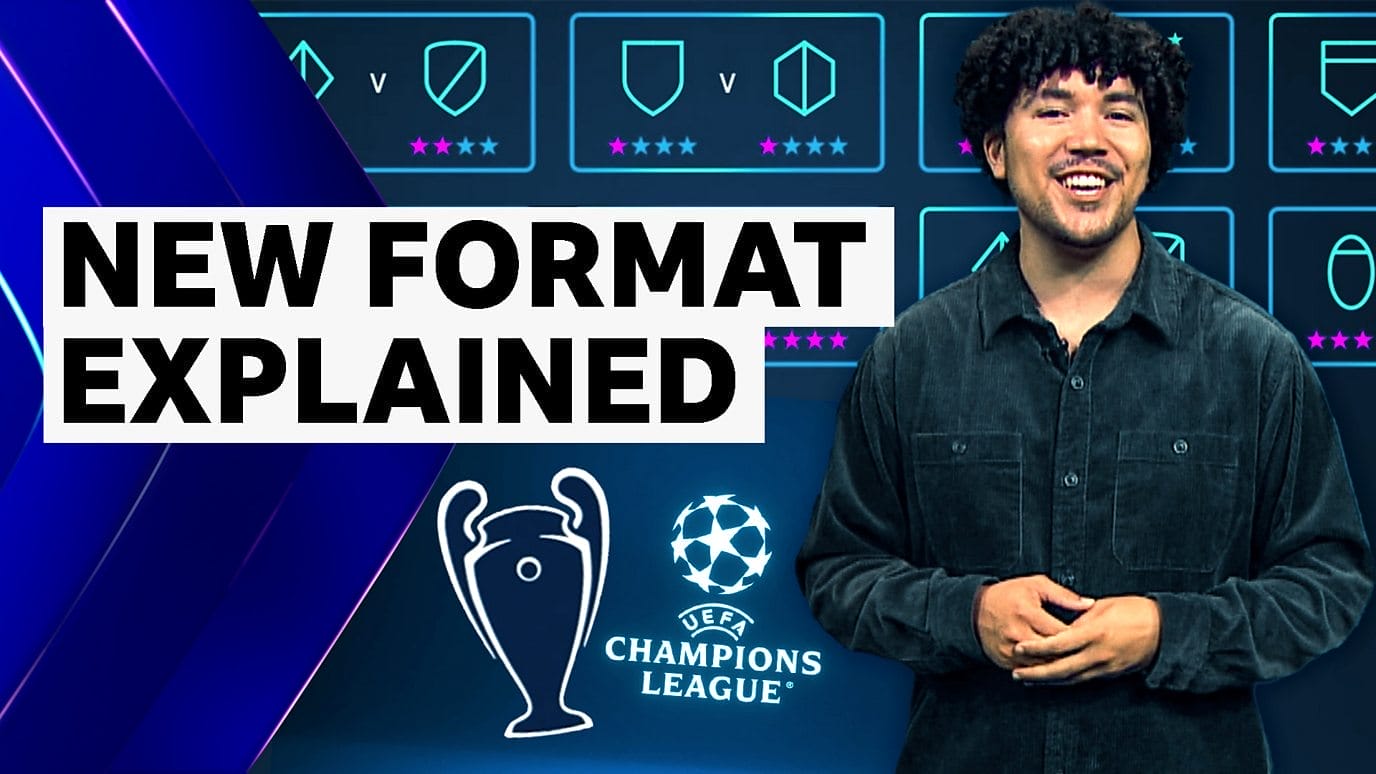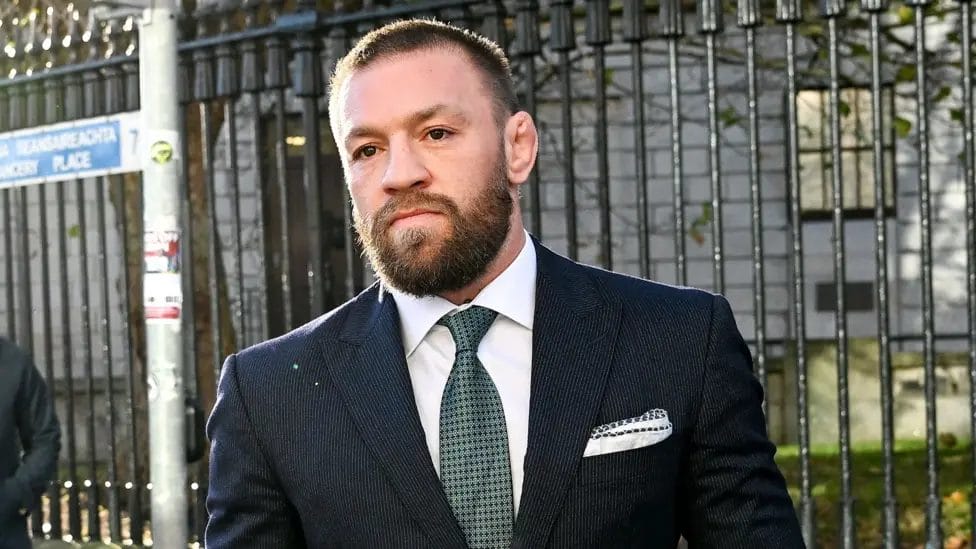
Arsenal manager Mikel Arteta has expressed his frustration and anger over the controversial penalty decision that led to a 1-1 draw against Brighton & Hove Albion on Saturday. The penalty, awarded by referee Anthony Taylor, was a central point of contention after the match, with Mikel Arteta criticising both the decision and the subsequent VAR review, calling it “inexplicable.” The incident that led to Brighton’s equalising goal was highly debated, with Arsenal’s fans and players left stunned by the refereeing in what was an otherwise tightly contested match on the south coast.
This article will dive deeper into the controversial penalty decision, Mikel Arteta’s reaction, the contrasting views between the two managers, and the wider implications for both teams as they move forward in the Premier League.
Arsenal’s Strong Start and the Penalty Controversy
A Solid Start for Arsenal
Arsenal made a strong start to the game at the Amex Stadium, and they were the first to break the deadlock. Ethan Nwaneri, who became the youngest ever player to feature for Arsenal in the Premier League, scored a memorable goal to put the visitors ahead. His composure in front of goal was a sign of the young talent coming through at the club. Nwaneri’s early goal seemed to suggest that Arsenal would continue to dominate and secure all three points.
However, as the match progressed, it became clear that Brighton were not going to lie down easily. The Seagulls began to find their rhythm, creating a series of attacks that put Arsenal under pressure. Brighton’s high pressing and rapid counter-attacks created numerous chances, and it felt like it was only a matter of time before they found an equaliser.
Joao Pedro’s Equaliser and the Controversial Penalty
The key moment of the match came on the hour mark when Joao Pedro of Brighton forced an equaliser, but it was the way in which the goal was earned that became the main talking point. The Brazilian forward executed a rather unorthodox move inside Arsenal’s penalty area, flicking the ball up into the air, creating a situation where William Saliba, who was marking Pedro, was left scrambling to make a play on the ball.
In what looked like a mistimed aerial challenge, Saliba made contact with Pedro’s head, and the referee, Anthony Taylor, immediately pointed to the penalty spot. This decision sparked outrage from Mikel Arteta and many Arsenal supporters, as the incident seemed to be a highly questionable one.
After some deliberation, the decision was reviewed by VAR officials, who confirmed that there was “sufficient contact” for the penalty to stand. Darren England, the VAR official, ensured that the original call was upheld, and the penalty was awarded to Brighton. Pedro confidently dispatched the penalty, sending Arsenal’s goalkeeper, Aaron Ramsdale, the wrong way to level the score at 1-1.
Mikel Arteta’s Fury with the Refereeing Decision
“I Have Never Seen a Decision Like This”
Immediately after the match, Mikel Arteta was visibly furious about the decision to award Brighton a penalty. The Spaniard voiced his displeasure both in his post-match interview and in his conversations with the officials, demanding an explanation. In his press conference, Mikel Arteta expressed that he had never encountered such a decision in his career:
“I have never seen a decision like this in my career. I asked the boys if they have and nobody has seen it before.”
Mikel Arteta’s frustration was evident, and he felt the incident was unjust given the circumstances. He continued to argue that Saliba had not only touched the ball but had done so in a manner that should not have resulted in a penalty:
“When you look at the incident, the distance, the player, Joao touching the ball, then Saliba touching the ball, you can see contact there,” Mikel Arteta said. “I checked with the officials. After three seconds they said they had already checked. It seems quick.”

The Disputed Contact and Saliba’s Role
According to Mikel Arteta, when analyzing the incident, Saliba seemed to make contact with the ball before he made contact with Pedro’s head. In slow-motion replays, it appeared as though Saliba had brushed the ball with his forehead before the collision with Pedro’s temple occurred. Mikel Arteta argued that the slight nature of the contact, combined with Saliba’s prior touch on the ball, should not have been enough to justify a penalty:
“Saliba touches the ball as well. We are really disappointed with the decision,” Mikel Arteta concluded.
The Arsenal manager’s comments were clear he felt that the referee’s decision was both overly harsh and inconsistent with the laws of the game. Arteta’s anger seemed to stem from the fact that such a marginal incident had led to such a significant consequence.
VAR’s Involvement and the Official Explanation
The VAR review, which ultimately upheld Taylor’s original decision, added fuel to Arteta’s fire. The Premier League later released a statement justifying the decision, claiming that “there was sufficient contact for a penalty.” Arteta, however, was not convinced by this explanation.
“After three seconds, they said it had already been checked. The speed at which they made the decision, coupled with the reasoning provided, left me perplexed,” Arteta added.
The issue with VAR, Arteta argued, was not necessarily the technology itself, but how it was used. He emphasized that the refereeing decisions this season have lacked consistency and that these inconsistencies often lead to frustration for players, managers, and fans alike.
Brighton’s Manager Fabian Hurzeler Defends the Penalty Decision
A Different Perspective from Brighton’s Boss
While Arteta was livid with the penalty call, Brighton manager Fabian Hurzeler had a very different perspective on the incident. Hurzeler, who took over as Brighton’s manager earlier this season, defended the referee’s decision, calling it “a clear penalty.”
“It was a clear penalty,” Hurzeler said in his post-match interview. “It is head-to-head, but if it is another piece of the body, everybody would say it was a penalty. Joao Pedro places the ball with his head, and Saliba comes too late, therefore it was a clear one.”
According to Hurzeler, the decision was justified because Saliba was too late to challenge Pedro after the ball had already been flicked. Hurzeler’s reasoning was based on the belief that if the contact had been made with any other part of the body for example, the chest or the arm there would have been no question about the penalty. In his view, Saliba’s mistimed challenge on Pedro after the ball had already been played was a clear infringement and worthy of a penalty.
Hurzeler’s Support for the Referee’s Call
The Brighton manager went on to express his confidence in the decision-making process:
“I think it was a very clear decision from the referee. There was contact, and it was a penalty,” Hurzeler added. “We were happy to have the chance from the spot and Joao Pedro took it very well.”
For Hurzeler, the call seemed straightforward, and he felt that the outcome was the right one, given the circumstances. The penalty decision, therefore, has become a dividing issue — one that highlights the differing perspectives from the two managers involved.
The Aftermath and the Implications for Both Teams
Arsenal’s Frustration Continues
The 1-1 draw against Brighton left Arsenal feeling frustrated, especially with the manner in which they dropped two points. Arteta will undoubtedly be frustrated by the penalty decision, but his team’s inability to control the game after taking the lead is also a concern. Arsenal struggled to maintain their advantage and allow Brighton back into the game, which is something Arteta will need to address in the coming weeks.
This result leaves Arsenal with a lot to work on, especially in terms of consistency and composure during matches. They now face the challenge of bouncing back from this disappointing draw in their next fixtures, with pressure mounting in the race for the top four.
Brighton’s Resilience
On the other hand, Brighton will feel somewhat vindicated by the result. They fought hard to get back into the game and were rewarded with a point after a strong second-half performance. The draw extended their unbeaten run and helped them keep pace with the top half of the table.
Manager Fabian Hurzeler will be pleased with the resilience shown by his players, and although the penalty decision may have been controversial, it is another example of Brighton’s ability to compete with some of the best teams in the Premier League.
Conclusion
Mikel Arteta’s fury at the controversial penalty decision in Arsenal’s 1-1 draw with Brighton has dominated the headlines. While Arteta firmly believes that William Saliba’s challenge should not have been penalised, Brighton’s Fabian Hurzeler defended the referee’s decision as clear and justified. The incident is a reminder of the subjective nature of refereeing decisions and how they can drastically alter the course of a game.
For Arsenal, the penalty has added to their frustrations as they continue to fight for consistency this season, while Brighton can feel content with their resilience in earning a point. As the season progresses, the controversy over this penalty is likely to be one of the talking points, especially with the impact it had on the outcome of the match.








